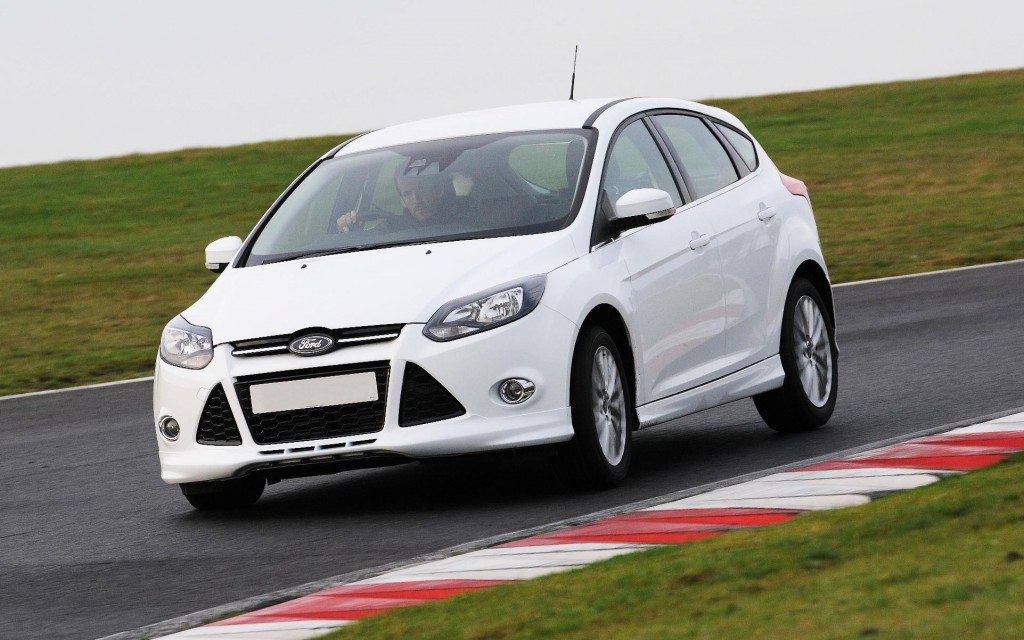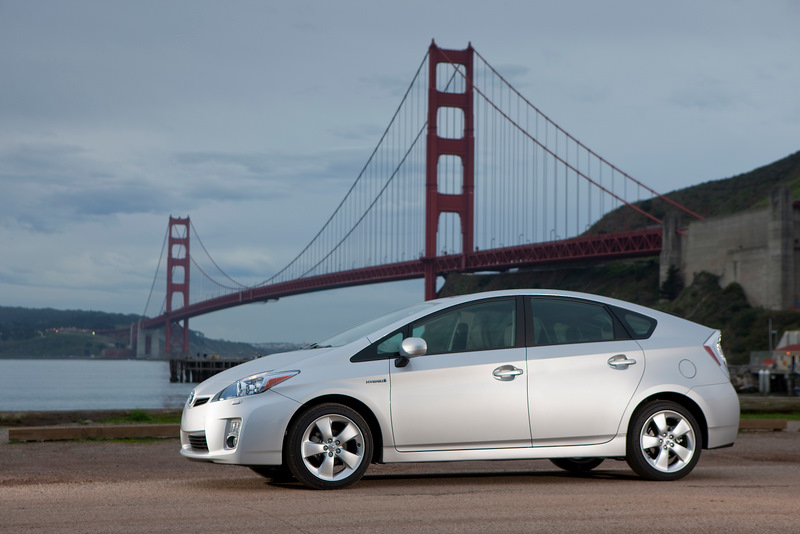How small is too small, when it comes to engines?
Those of the "no replacement for displacement" school of thought might be thinking more about performance than they are gas mileage, but at what point does downsizing actually start to harm gas mileage, rather than help it?
As carmakers strive to attain better MPG figures, many are beginning to build smaller engines, often turbocharged to make up for the lack of displacement.
High tech, not-so-high MPG
Ford's eagerly-awaited 1.0-liter, 3-cylinder EcoBoost is one such example.
Designed to replace a naturally-aspirated 1.6 four-cylinder in terms of performance, yet improve on its economy, the EcoBoost is getting praised around the world by the motoring press.
It will come to the U.S. in the nose of the 2014 Ford Fiesta. In that format, with 123 horsepower and 148 lb-ft of torque at 1,400 rpm, Ford is claiming the highest gas mileage "of any non-hybrid" in the U.S. market.
In Europe, the 1.0 engine in a Ford Focus gets 47 mpg. Subtract the 15-20 percent difference between European and U.S. figures and you get an average of around 40 mpg--not bad at all, for a gasoline car.

2012 Ford Focus 1.0 EcoBoost
If only it were that simple.
UK site Honest John runs "real mpg" figures compiled from owner accounts. In the real world, Focus EcoBoost owners are only achieving 34 mpg--72 percent of the official claims.
Across the entire site, owners in the UK are averaging 88 percent of official figures, so 72 percent is hugely off-target. It's also barely above that of the 33 mpg 2012 Ford Focus SFE sold in the U.S.--with its 2.0-liter engine.
The story is similar for another award-winning engine, the Fiat TwinAir.
Under the stubby hood of a Fiat 500, it's said to achieve almost 59 mpg. In reality, owners are getting 40 mpg--70 percent of the official number, and no better than the regular (and much cheaper) four-cylinder 1.2-liter.
Quick drive: TwinAir engine in a Chrysler Ypsilon subcompact
Regular engines in each range, without the high-MPG fanfare, are comfortably achieving over 80 percent of the claimed figures--so why are the "eco" engines struggling?
Under-sized, over-stressed?
The average economy of downsized engines isn't just affecting cars at the bottom of the market--even larger vehicles are struggling to show any benefits.
On Fuelly, Ford F-150 drivers are averaging 17 mpg--both with the 3.5-liter V-6 EcoBoost engine, and the supposedly less efficient V-8. And Toyota has dropped the four-cylinder 2.7 from its Toyota Sienna minivan, since the larger 3.5-liter V-6 achieved the same 21 mpg.
It suggests that when it comes to gas mileage, there's simply a point where a smaller, less powerful and lower-torque engine has to be worked too hard in normal driving for its benefits to show.

2010 Toyota Prius
Toyota knew this when it developed the 2010 Prius.
Compared with 2004-2009 models, it used a bigger engine--1.8 liters versus 1.5. Yet MPG still went up, and users on Fuelly are achieving a few mpg more despite having more performance.
While smaller engines should use less fuel (all other things being equal) many seem to struggle doing so when they also have to haul along a relatively heavy modern car body.
And they struggle even more in cut-and-thrust traffic, when the driver needs a little more performance. This is why many subcompacts achieve little better mileage than larger compact cars.
Caveat emptor
So how small is too small, then?
It clearly depends on the application, for a start. While a 900cc turbocharged engine in a Fiat 500 is no better than a 1.2-liter four-pot available in Europe, the 1.2 is recording figures almost 7 mpg better than the slightly larger 1.4-liter unit--so 1.2 liters is probably the sweet spot for the 500.
Likewise, the Toyota Prius may not necessarily be made more efficient by increasing the engine to a 2.0-liter unit. And buyers are over-achieving when it comes to economy in the 1.4-liter, turbocharged Chevrolet Cruze Eco.
But significantly downsizing to chase impressive EPA figures may not be as beneficial as it sounds.
Not only do many of these vehicles seem unable to match their figures in the real world, but the complicated, high-tech engines often cost a little more in the first place.
When the 2014 Ford Fiesta hits U.S. shores with the 1.0 EcoBoost engine and a headline efficiency figure, we'd advise you to treat it with suspicion--particularly given recent concerns over Fords missing their official EPA figures.
Of course, in the smaller, lighter Fiesta, the EcoBoost may be fine--which is really our point.
Some engines are better suited to some cars than others--buy too small, and "your mileage may vary" just a little more than you were expecting...
+++++++++++












